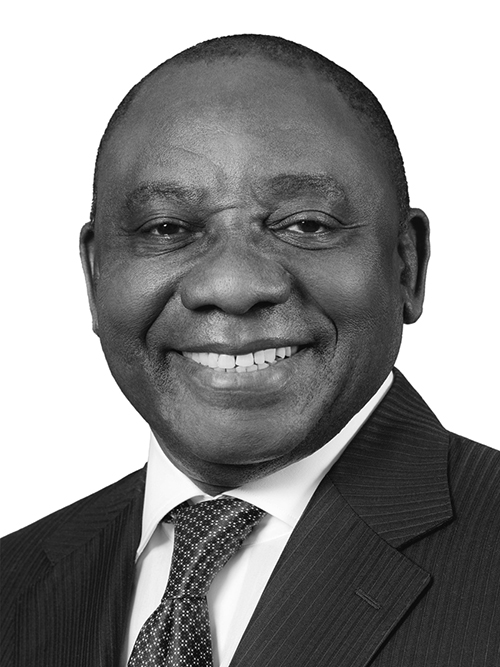President Ramaphosa discusses Climate, Energy and Health at G7 Leaders’ Summit

President Cyril Ramaphosa has concluded a successful visit to the Federal Republic of Germany, where he attended the G7 Leaders’ Summit, at the invitation of the German Chancellor H.E Mr Olaf Scholz.
Together with leaders of G7 countries, invited Heads of State and Government from Argentina, India, Indonesia, as well as the African Union Chairperson, European Union President and leaders of other International Organisations, President Ramaphosa participated in working sessions where Climate, Energy, Health as well Global Food Security and Gender Equality were discussed.
In these discussions, President Ramaphosa highlighted concerns regarding the absence of equity and transparency in the availability of vaccines for African countries, which has been sharply exposed by the COVID-19 pandemic. He urged the international community to work together towards a new international treaty for pandemic preparedness and response.
In this regard, President Ramaphosa pointed out that the financing gap for the ACT Accelerator, which currently stands at more than USD 16 billion for 2022 needs to be narrowed , among other issues.
On energy, President Ramaphosa cautioned against adverse ramifications of the proposed revision of the European Union Renewable Energy Directive, which is intended to accelerate green hydrogen investments.
The President highlighted that the proposed regulations have the potential to limit the ability of enterprises to supply key export industries with sustainable energy solutions and impact their global competitiveness.
“As we pursue a just transition, developing economies need development space to address high levels of inequality, unemployment, under-development and the economic impact of the COVID-19 pandemic.
Abrupt disinvestment from fossil fuels by international financiers poses a great risk to Africa because of the impact on jobs, stranded assets, national economies, energy and food security,” said President Ramaphosa.
President Ramaphosa urged that all climate related actions should find expression within the context of both the right to development and a just transition. He emphasised the need for a just transition that is well resourced to enable the move to a low carbon economy that is phased and planned. “A transition that catalyses new economic opportunities, while protecting affected workers and communities”, the President said.
To a greater extent, the President expressed that South Africa is pleased with the progress that has been made in advancing the long-term collaboration under the groundbreaking Just Energy Transition Partnership.
The President also indicated that South Africa looks forward to a successful COP27 that delivers far more significant outcomes with regards to means of implementation support, adaptation and addressing loss and damage caused by climate change.
President Ramaphosa discussed issues of food security, fuel supply and increasing local production on items that are currently in low supply due to the conflict in Ukraine.
He expressed the need to enhance the resilience of food and agricultural production systems through adaptation, reducing agricultural greenhouse gas emissions and safeguarding national food security.
He then further made a special proposal that developing countries on the African continent, working together with the G7 countries, should be self-reliant in the production of fertilizers to ensure food security.
President Ramaphosa reiterated South Africa’s commitment to working with the international community, including the G7 countries, in the collective quest to end global hunger.
“We also remain committed to forging the necessary partnerships with business, academia, the scientific community and our development partners to build agricultural resilience and increase production and thereby lift millions out of dire poverty. This includes the urgent consideration and support to the proposal of capacitating the African continent to be self sufficient on the production of fertilisers to enhance food security ,” said President Ramaphosa.
Furthermore, the President shared South Africa’s commitments and interventions on advancing Gender Equality, mentioning the public employment programme in which 62 per cent of participants are women. As well as the promotion of women’s financial inclusion through a national policy that calls for 40 per cent of all public procurement to go to women-owned businesses and South Africa’s successful chairing of the 66th session of the Commission on the Status of Women.
On the margins of the Summit, the President met with several Heads of State and Government, including the Prime Minister of Japan and the German Chancellor.
He also met the Prime Minister of India, H.E Narendra Modi. The leaders discussed cooperation between the two countries in the fight against the Covid-19 pandemic which resulted in the World Trade Organisation's acceptance of the TRIPS Waiver. They also discussed the enhancement of trade relations and commitment in multilateralism and BRICS cooperation.
President Ramaphosa also met Prime Minister of the United Kingdom, H.E Boris Johnson.
The leaders discussed their commitment to the speedy resolution of the Russsia-Ukraine conflict and further enhancement of bilateral trade relations. They also discussed opportunities in Green Hydrogen and Fuel Cells.
He further had discussions with the African Union Chairperson, President Macky Sall of Senegal, who shared a report from his his recent trip to Russia.
Media enquires: Vincent Magwenya, Spokesperson to the President on +27 (82) 835-6315
Issued by: The Presidency
Pretoria




